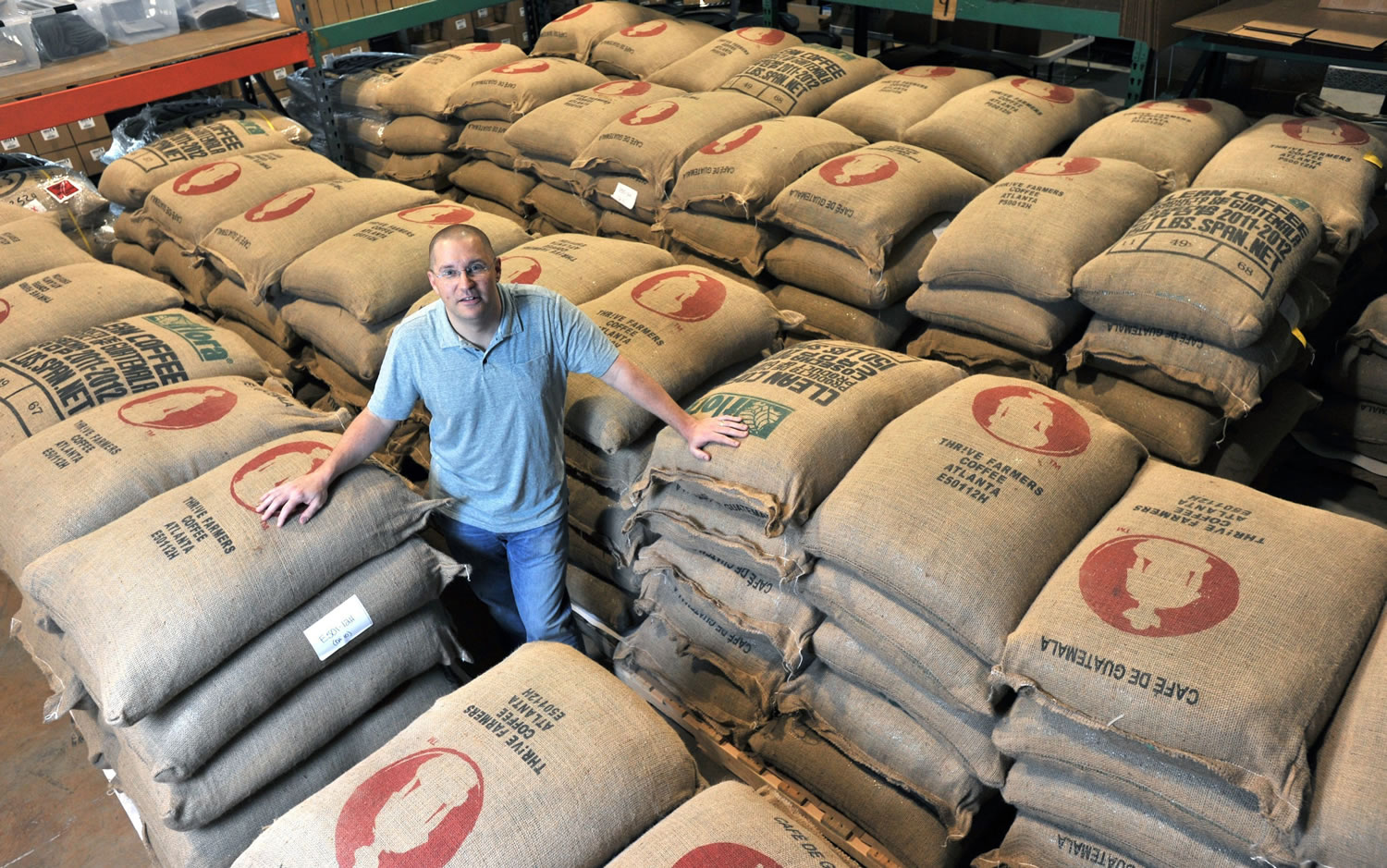In the winter of 2011, Michael Jones left a profitable health care services company that he founded and went in search of meaning.
He was 40 years old, a husband and the father of sons aged 5, 3 and 1, with whom he longed to spend more time. He was a successful Roswell, Ga., businessman fulfilling a childhood dream: making money. And it just didn’t feel right.
“What I thought would be a mountaintop experience that would carry me through the rest of my life lasted about three days,” Jones said recently. “I felt like maybe I was dreaming about the wrong thing.”
Jones decided he wanted — no, needed — to invest in people, something more enduring.
That became the narrative of the next six months of his life and what led him to co-found Thrive Farmers Coffee. He spends his days working not so much for the material things as he does to improve the lives of coffee farmers in faraway places such as Honduras, Guatemala and Costa Rica.
This new venture started as he began trying to understand why his father-in-law, a Jamaican coffee grower, received only $4 of the $80 for which his crop sold in Japan. The solution came together as he met a future partner.
After leaving his health care business, Jones was introduced to Kenneth Lander, an attorney who had left Georgia to become a Costa Rican coffee farmer.
Lander’s story, Jones discovered, wasn’t much different from his own. Both had abandoned fast-paced lives for more balance. Moreover, both had personal experience with the challenges coffee farmers faced.
Troubled that he was not seeing more of the final price of his crop when he sold his coffee beans, Lander had begun roasting his own and then selling them directly to Facebook friends in the United States. Bypassing exporters, importers and brokers, he also opened a coffee shop and sold his product to tourists. When he ran out of beans, he teamed up with other area coffee farmers and began shipping even more. The money started to come.
Lander had happened upon a solution: He was turning a profit and educating fellow farmers on best practices so their yield would increase. And in Lander’s story, Jones found the reason for his father-in-law’s struggles.
“I was flabbergasted,” he said.
As Lander saw it, fair trade, which guarantees farmers a minimum price, was nothing more than an insurance policy for farmers.
“That’s the real crux of fair trade,” Lander said during a visit to Thrive’s international headquarters in Roswell. “For instance, the fair trade minimum price for a pound of green coffee is $1.41. To grow it and process it, it costs the same thing right now, so the farmer basically breaks even. But that’s not a livelihood. Farmers are being forced to abandon their farms. Those who don’t barely earn enough to buy food even though many work two jobs.”
Lander said that in his little community of San Rafael, the average food bill for a family of five is $4,500 a year. The average coffee farmer who grows 4,000 pounds of green coffee will be lucky under fair trade to make $400 net profit. Under Thrive, he said, he would make $5,200 net profit.
“That’s the real power of our model,” he said. “It’s transformational.”



